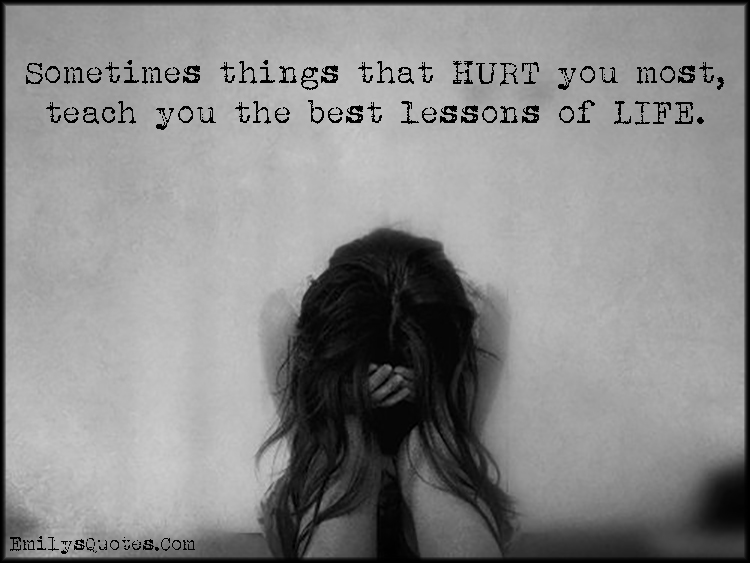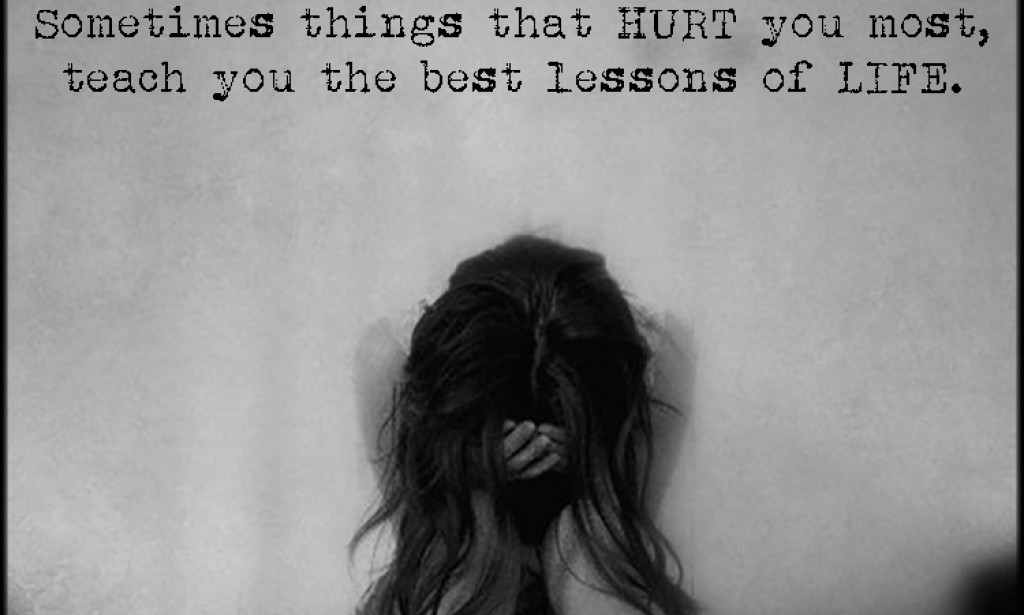We've all heard them before—those feel-good pieces of advice that sound wise but might be steering us in the wrong direction. From "just be yourself" to "follow your passion," these popular mantras have become so ingrained in our culture that questioning them feels almost blasphemous. But what if some of our most cherished life advice is holding us back?
Let's dive into eight commonly accepted pieces of wisdom that, despite their popularity, might be doing more harm than good.
1. People Pleasing: The Addiction That Destroys Lives
The Problem: Meet Jessica, the human doormat. She says yes to everything because she believes that's what nice people do. Last month, she spent 20 hours helping a coworker move while her apartment looked like a disaster zone. But at least Sarah from accounting thinks she's nice.
People pleasing is like having an approval addiction—the more you chase it, the more you need it. And just like any addiction, it'll destroy your life while making you think you're doing the right thing.
Why It Backfires: The more you say yes, the less people value your help. It's like giving away free ice cream—eventually, people stop saying thank you and start complaining it's not their favorite flavor. People pleasers often attract the most toxic friends because healthy people respect boundaries, but manipulators love someone who can't say no.
The Reality Check: You become everyone's plan B, like that frozen pizza in the back of your freezer. Being nice all the time isn't nice—it's just slow-motion self-destruction with a smile.
2. "Just Be Yourself" Isn't Always Good Advice
The Problem: This advice is like telling someone with food poisoning to "let it all out"—sometimes keeping it in is the better option. Take Dave, who loves to "tell it like it is." He thinks being honest means saying whatever pops into his head. He told his boss her presentation was boring and his wife that her cooking tasted terrible. Now he's divorced and unemployed, but at least he's authentic.
The Truth About Authenticity: Your authentic self isn't some magical, unchangeable thing you're born with. It's just a bunch of habits you've picked up over time—some good, some bad, some weird enough to make your therapist need therapy.
A Better Approach: Think of yourself like a smartphone that needs regular updates to stay useful. You wouldn't keep using Windows 95 just because it was your first operating system. Instead of "just be yourself," try "be your best self"—because sometimes your authentic self needs an upgrade.
3. When Quitting Is the Smartest Move
The Misguided Persistence: Meet John, who's been at the same soul-crushing job for 15 years because "quitting is for losers." Now he's got ulcers, high blood pressure, and the personality of a wet sock.
The Success Secret: Successful people quit all the time—they just call it "pivoting" or "strategic realignment" because it sounds fancier. Your life is like a phone: sometimes you need to close some apps to keep it running smoothly.
The Smart Quitter's Mindset: If you're digging a hole and realize you're in the wrong spot, smart people quit digging and start fresh. The best quitters are like chess players—they know exactly when to sacrifice a piece to win the whole match. Staying in a bad situation isn't persistence; it's a form of punishment.
4. The Comfort Zone Trap: Why Familiar Feels Safe but Kills Growth
The Comfort Zone Prison: Bob has been ordering the same sandwich at the same deli for 15 years—not because it's amazing, but because trying something new feels scary. He's basically in a long-term relationship with a mediocre turkey club.
The Hidden Danger: His life is like a hamster wheel: lots of movement, zero progress. He's turned his comfort zone into a maximum-security prison, complete with emotional guard towers and anxiety barbed wire.
Breaking Free: What feels safe now might be killing you slowly. Comfort zones are like prisons with really nice furniture—the familiar hell feels safer than an unknown heaven. Your brain loves routine, but real growth happens when you step outside your established patterns.
5. The Myth of Keeping Your Options Open
The Window Shopper's Dilemma: Alex has more dating apps than actual dates, three half-finished degrees, and enough side hustles to fill a circus tent. He thinks keeping his options open means he's free, but he's about as free as a hamster with multiple wheels—still running in circles, just with more variety.
The Commitment Paradox: His friend Sarah used to be the same way until she committed to one path and stuck with it. While Alex is still swiping through life, Sarah has built something real.
The Garden Analogy: It's like having a garden—you can plant one seed and grow a mighty oak, or scatter a thousand seeds and end up with weeds everywhere. True freedom isn't having infinite choices; it's having the courage to choose one thing and see it through to the end.
6. Sleep More, Work Less: When Good Advice Goes Too Far
The Over-Sleeper's Trap: Jake took "hustle less, sleep more" way too seriously. He turned his bedroom into a hibernation chamber and now has more sleep hours than career prospects. His productivity is lower than a snake's belly button.
The Balance Reality: Sleep is like chocolate cake—the right amount is amazing, but too much and you're just a lazy blob with regrets. Your body needs 7-9 hours of sleep, not 12 or 14. You're not a koala.
Finding the Sweet Spot: Balance isn't about replacing one extreme with another. It's about finding the sweet spot between being overly ambitious and being a hibernating bear—and bears don't have student loans to pay off.
7. Follow Your Passion: The Costly Myth
The Passion Trap: Olivia loved baking and quit her stable accounting job to open a bakery. Now she spends 16 hours a day doing paperwork, managing angry employees, and dealing with health inspectors. The actual baking? Maybe 30 minutes a day.
The Alternative Success Story: Meanwhile, her friend Mike stuck with his "boring" tech job and got good at it. He developed a passion for coding after mastering it and now makes six figures doing something he loves.
The Real Formula: Passion is more like a house plant than a birthright—you don't just find it; you have to water it and give it attention. Focus on becoming valuable first by solving problems people will pay for. The passion will show up later, like that relative who only visits when you're successful.
8. Structure Equals Freedom: The Paradox That Changes Everything
The Chaos of "Freedom": Tom, the free spirit who thinks schedules are for squares, lives like a Jackson Pollock painting—colorful chaos that only makes sense if you're on drugs. His apartment looks like a tornado fought with a dumpster and both lost.
The Structured Life: His friend Lisa has her life structured like a military operation with morning routines, meal plans, and workout schedules. Surprisingly, she has more free time than most people.
The River Banks Principle: Think of structure like the banks of a river—without them, water just spreads out into a useless swamp. With them, it becomes powerful enough to generate electricity. Without structure, freedom becomes chaos, and chaos is just failure wearing a party hat.
The Bottom Line: Question Everything
These eight pieces of conventional wisdom reveal a crucial truth: not all advice that sounds good is good. Sometimes the most popular guidance is popular precisely because it's easy to swallow, not because it's effective.
The key is to question everything, even advice that feels comfortable or validating. Real growth often comes from doing the opposite of what feels natural or what everyone else is doing. Sometimes the path to success is counterintuitive, uncomfortable, and not what you'd see on a motivational poster.
Before you follow any piece of advice—including this article—ask yourself: "Does this actually work in practice, or does it just sound nice?" Your future self will thank you for the critical thinking.
What's your take on these controversial life lessons? Have you fallen into any of these traps? The conversation continues in the comments below.


You must be logged in to post a comment.